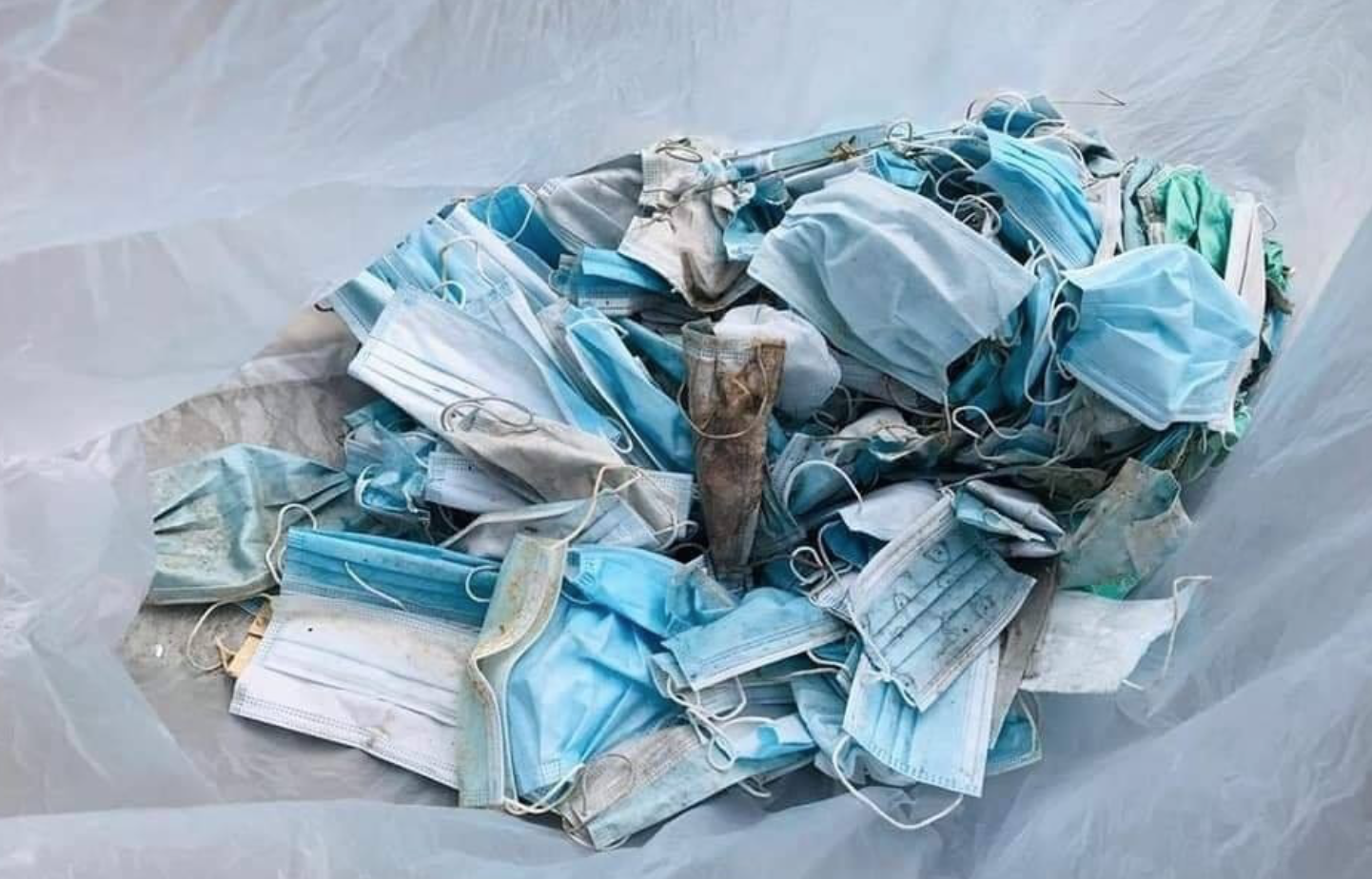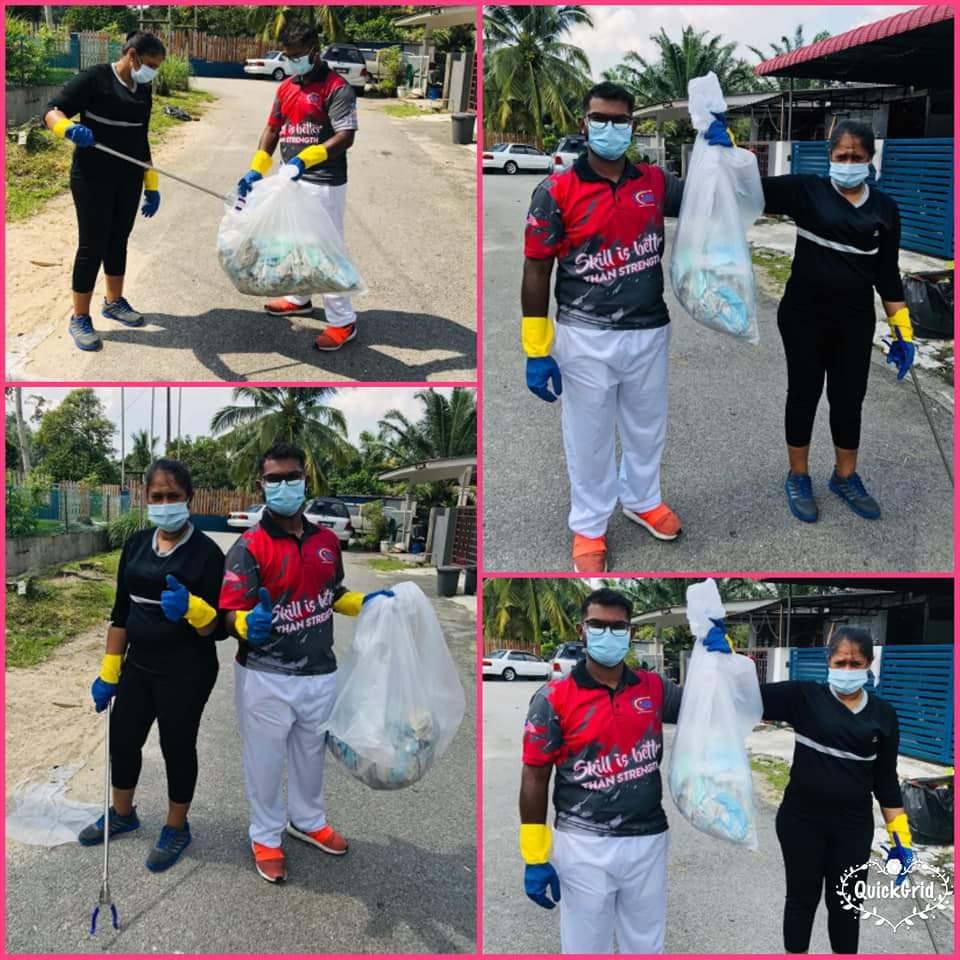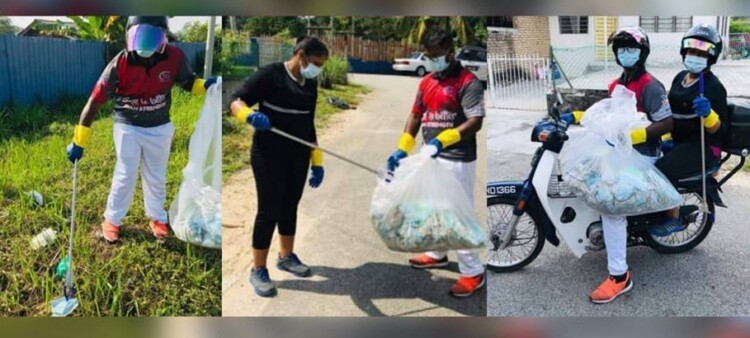For the past few weeks, the glut of discarded single-use masks kept appearing on busy sidewalks, in supermarket parking lots, or along roadsides with damp leaves and human debris. The problem has only worsened as the mask litter is more hazardous than normal garbage, as it has a higher risk of spreading the novel coronavirus.
As a result, Penang siblings Vasugi Ramasamy and Suriya Kuppusamy who both hail from the Sungai Bakap area started the initiative to collect face masks littered about, armed with their own appropriate ‘work gear’ in face masks, gloves, and plastic bags. They have noticed the alarming trend and the quantities of masks and gloves found were far from enormous.
According to Vasugi, their purpose of starting this cleaning initiative was to reduce the spread of any germs, bacteria, and viruses, especially amid the Covid-19 crisis. Some of the areas that they have also covered in collecting the littered face masks include the Sungai Bakap Post Office, Sungai Bakap Hospital, and also around the Parit Buntar area.
Masks are increasingly becoming common street trash, as Malaysians don them as safety precautions against COVID-19 and then discard them All over.

While the coronavirus is believed to primarily spread through human-to-human contact, a growing body of evidence suggests that contaminated particles can linger on surfaces for hours or even days. That means there’s a small but not inconsiderable chance that someone who picks up a discarded mask could get infected.
It is thoughtless and irresponsible behaviour, as the items present a real danger of transmitting the coronavirus.

“We don’t know if senior citizens or young children who are living among us have strong immune systems to protect themselves against the Covid-19 pandemic,” says Vasugi.
Some of them might even be vulnerable to the pandemic if the wearer has Covid-19 or has touched a surface carrying the virus, which is why it is important for us to not litter our face masks everywhere. The virus is fragile, and if the mask has been exposed to the sun, the transmission is highly unlikely.
Well done u both! We applaud you!
Follow us on Instagram, Facebook or Telegram for more updates and breaking news.








